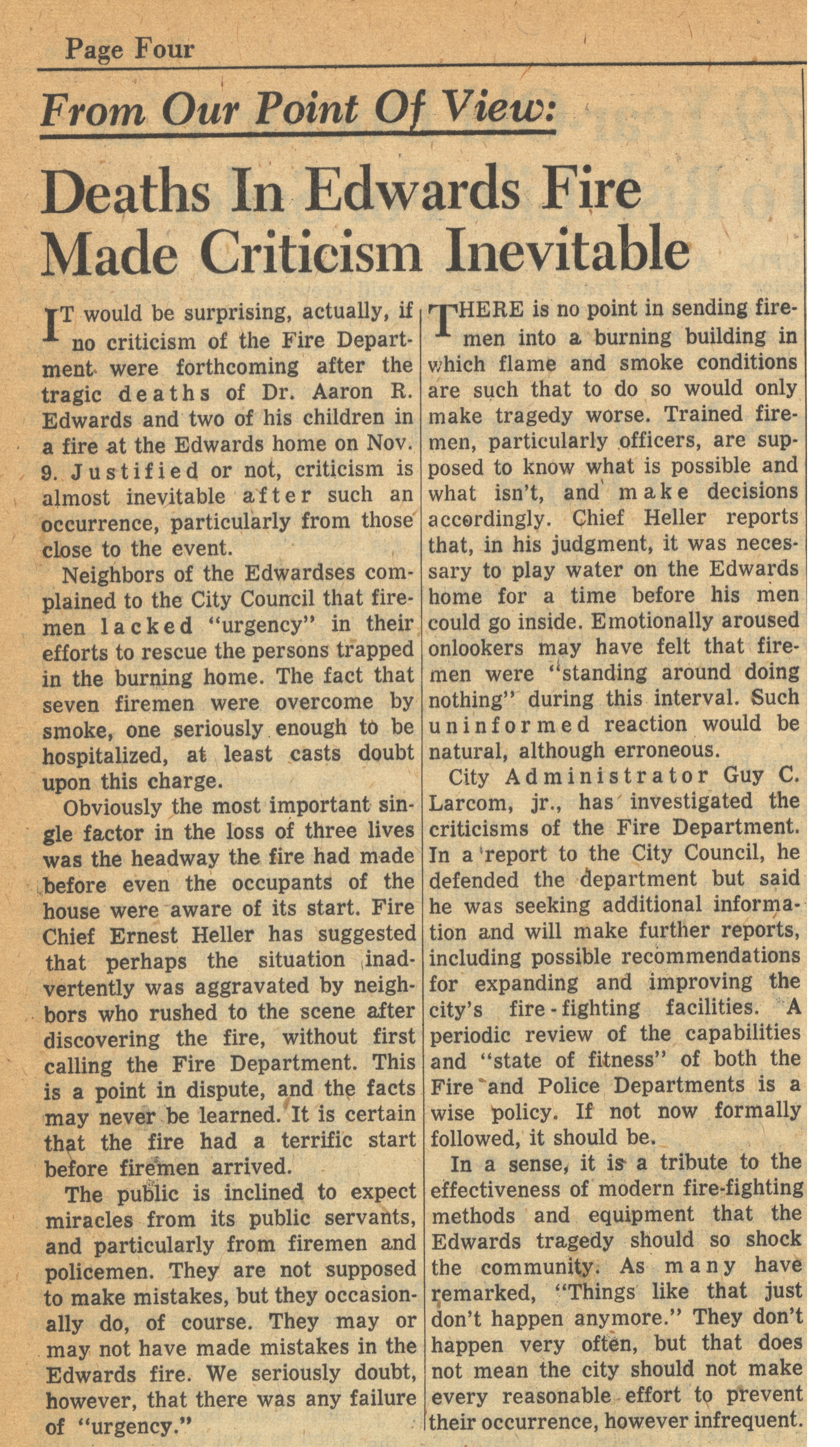From Our Point of View: Deaths In Edwards Fire Made Criticism Inevitable

Page Four
From Our Point Of View:
Deaths In Edwards Fire Made Criticism Inevitable
It would be surprising, actually, if no criticism of the Fire Department were forthcoming after the tragic deaths of Dr. Aaron R. Edwards and two of his children in a fire at the Edwards home on Nov. 9. Justified or not, criticism is almost inevitable after such an occurrence, particularly from those close to the event.
Neighbors of the Edwardses complained to the City Council that firemen lacked “urgency” in their efforts to rescue the persons trapped in the burning home. The fact that seven firemen were overcome by smoke, one seriously enough to be hospitalized, at least casts doubt upon this charge.
Obviously the most important single factor in the loss of three lives was the headway the fire had made before even the occupants of the house were aware of its start. Fire Chief Ernest Heller has suggested that perhaps the situation inadvertently was aggravated by neighbors who rushed to the scene after discovering the fire, without first calling the Fire Department. This is a point in dispute, and the facts may never be learned. It is certain that the fire had a terrific start before firemen arrived.
The public is inclined to expect miracles from its public servants, and particularly from firemen and policemen. They are not supposed to make mistakes, but they occasionally do, of course. They may or may not have made mistakes in the Edwards fire. We seriously doubt, however, that there was any failure of “urgency.”
There is no point in sending firemen into a burning building in which flame and smoke conditions are such that to do so would only make tragedy worse. Trained firemen, particularly officers, are supposed to know what is possible and what isn’t, and make decisions accordingly. Chief Heller reports that, in his judgment, it was necessary to play water on the Edwards home for a time before his men could go inside. Emotionally aroused onlookers may have felt that firemen were ‘‘standing around doing nothing” during this interval. Such uninformed reaction would be natural, although erroneous.
City Administrator Guy C. Larcom, jr., has investigated the criticisms of the Fire Department. In a report to the City Council, he defended the department but said he was seeking additional information and will make further reports, including possible recommendations for expanding and improving the city’s fire-fighting facilities. A periodic review of the capabilities and “state of fitness” of both the Fire "and Police Departments is a wise policy. If not now formally followed, it should be.
In a sense, it is a tribute to the effectiveness of modern fire-fighting methods and equipment that the Edwards tragedy should so shock the community. As many have remarked, “Things like that just don’t happen anymore.” They don’t happen very often, but that does not mean the city should not make every reasonable effort to prevent their occurrence, however infrequent.